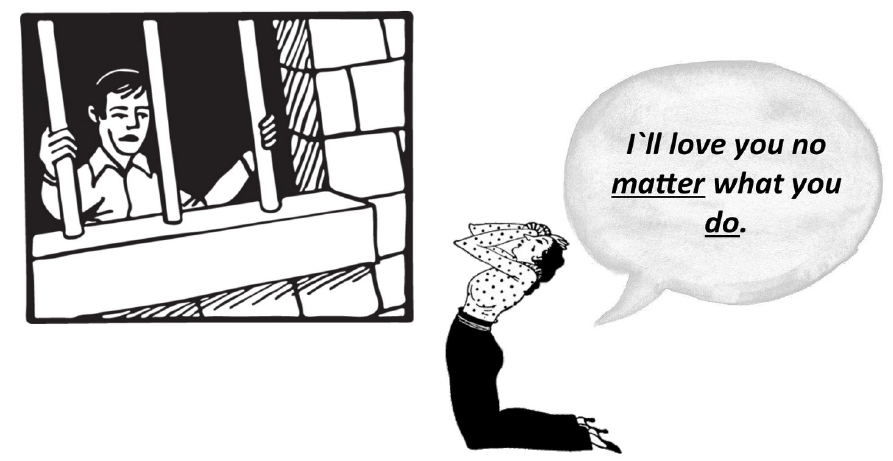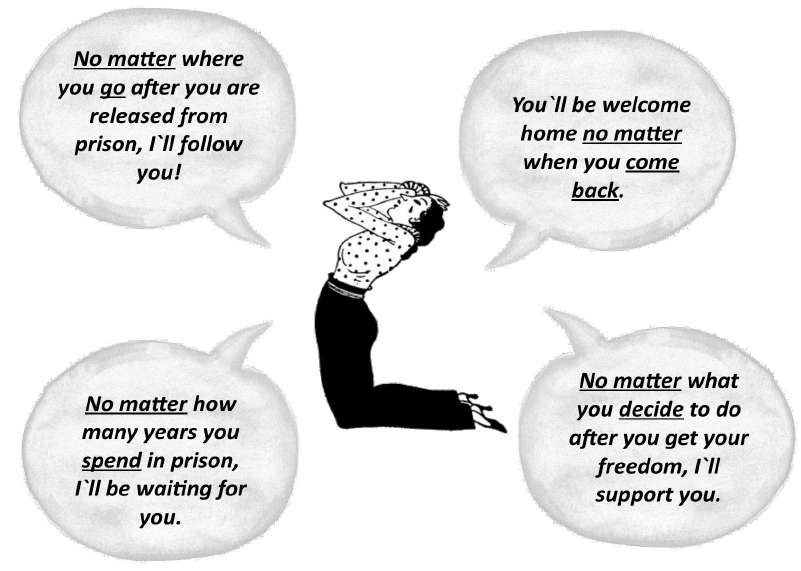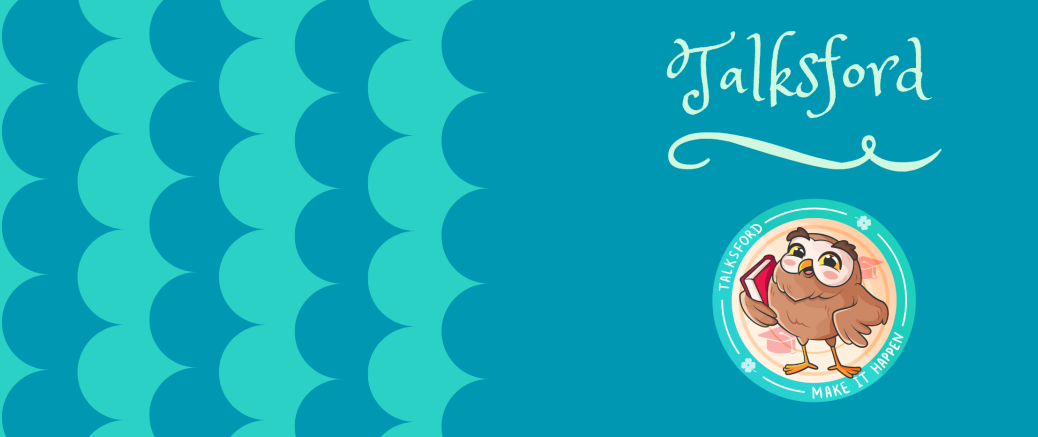In this article, we’ll explore the conjunction "no matter" and how it can be used to express situations where something is not important, regardless of other factors. Through the story of Robert and his wife Rachel, students will learn how to connect clauses and convey the idea that something remains constant no matter the circumstances. By the end of the lesson, students will be able to use "no matter" with different question words like who, what, where, and more, as well as understand how to use it in both present and future contexts.
Prepare your board in advance by drawing or sticking pictures of a man sitting behind bars and a crying woman standing next to him. Establish the context:
This is Robert. A week ago, he held up a bank and was arrested by the police. The court sentenced him to 5 years in jail. His wife Rachel came to visit him in prison. Let’s imagine what Robert’s wife might be saying to him.
Write the conjunction ‘no matter’ on the board and explain how it should be used. Then, model a sentence as an example of what Robert’s wife could be saying.
‘No matter’ can be used with who, whose, what, which, where, when, and how. These expressions are conjunctions used to join clauses together. The meaning is similar to "it is not important who/what, etc." We use a present tense with a future meaning after ‘no matter.’

Elicit other sentences from the students. Provide immediate correction if necessary.

No matter what can be used at the end of a clause without a following verb: I’ll always love you, no matter what!
